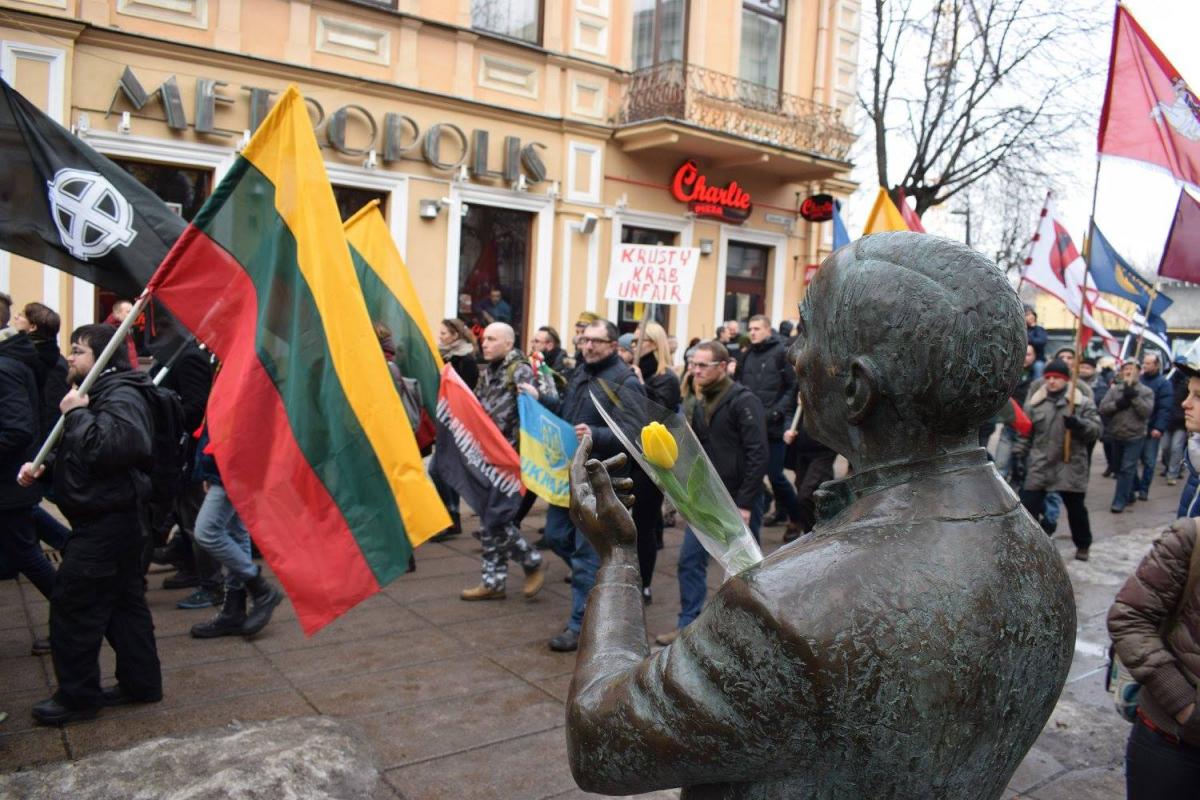Russophobia Vulgaris A La Lietuva
Autorius: Vladislavas B. Sotirovičius Šaltinis: https://orientalreview.org/201... 2018-04-10 20:19:52, skaitė 737, komentavo 1

The historical Western policy of „Russophobia Vulgaris“, which is currently promulgated by the British Cabinet of Theresa May, is nothing new. It was originally started by the British Empire in the XIX century, followed up by the US after the WWII and now, as Russia it getting notably reinforced, is escalated in the form of the “New Cold War”. The Russian exodus from the West (diplomatic only yet), presented as a punishment for Russia’s alleged nerve gas poisoning of a former Russian/MI6 double-agent reminds us of the baiting of Jews in the Middle Age for alleged ‘poisoning of wells‘.
We have to remember that Administration of Pres. Truman (1945-53) originally started the Cold War using the myth of “Soviet expansionism” to mask its own aggressive foreign policy focused on promotion of global political and economic agenda of the West. The current Western virus of “Russophobia Vulgaris” was replanted despite Soviet Union and Communist ideology were disbanded in 1989−1991.
The carriers of this virus are not only military professionals, politicians and media warriors on a payroll, but Western academic institutions as well. Lithuania is one example where an academic institution prioritizes political aims to the scientific values and even moral norms.
As I lived and worked in Lithuania (a minor member state of NATO and EU since 2004) for the last twenty years as a lecturer at several universities, I can confirm that Russophobia dominated in the academic culture of this country. The latest case of my personal experience is a regretful proof of that.
To make a long story short, it is a traditional practice at my current job-institution – Mykolas Romeris University (MRU) in Vilnius, to commemorate victims of all notable human catastrophes, like terror acts, traffic accidents or natural disasters, but with only under one exception: they never sympathize with the Russians. In other words, the university’s authorities, according to my knowledge, never officially commemorated any catastrophe with the Russian victims. However, as it is known, the recent (March 25th) catastrophe in the Siberian city of Kemerovo, when 64 persons died, among whom half were children was probably one of the most terrible ones that happened in Russia in XXI century. Personally, I was really expecting at least a kind of an official (and above all human) reaction by my university’s authorities to this catastrophe according to the previous similar examples elsewhere, a simple note of condolences on university’s website. Unfortunately, after several days I understood that it was not going to happen (for a quite known reason). Twice I tried to approach a responsible MRU person (Vaidotas Norkus) via email to publish the official university’s condolence to Kemerovo victims only to be rejected without any kind of explanation why.
The same days I offered him my fresh article on Oriental Review entitled “Historical Roots of Modern Albanian Imperialism“, as it is a long-time practice by MRU to advertise activities of its academic personals in domestic and international mass media . To my complete dissatisfaction, I got the answer that my article is not going to be announced as it is published “at a Moscow-based “Fake News” website”! Furthermore, the same authority was extremely dissatisfied that I’m ranked among the Top 5 contributors of Oriental Review!
Hereby I would like to let the ordinary readers of the alternative media know that the post-Cold War Western „Russophobia Vulgaris“ virus is driving the world towards a new stage of the Cold War even within the framework of the Western-clients’ academic institutions. But should we regard them as academic then?
Prof. Dr Vladislav B. Sotirovic
Mykolas Romeris University
Vilnius, Lithuania
